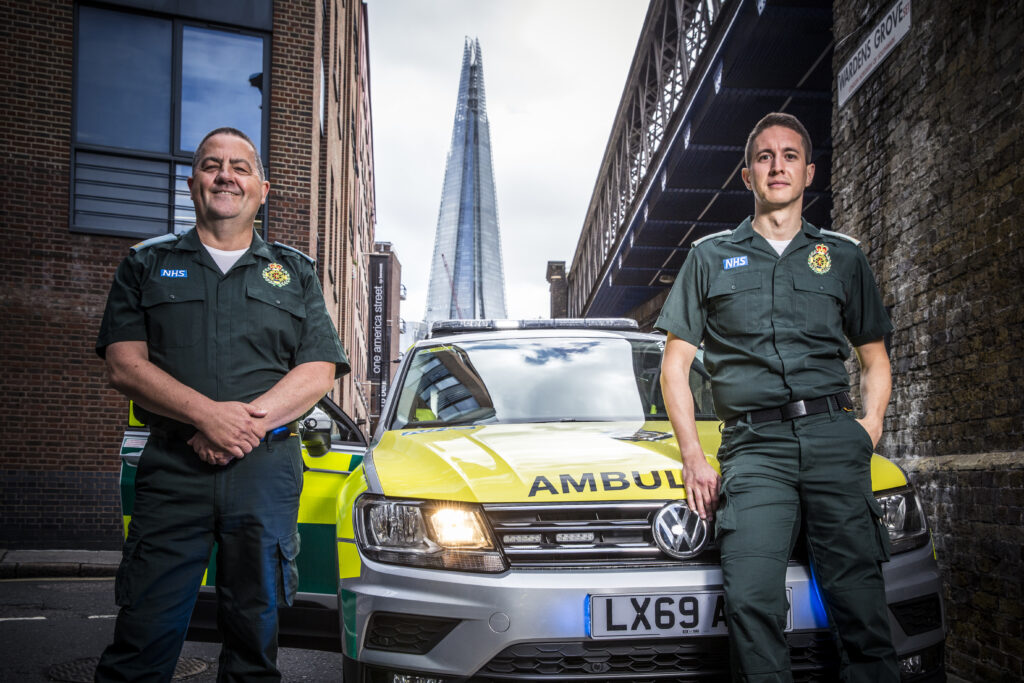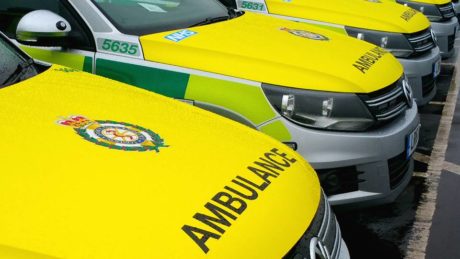What is the commitment?
After passing the application and assessment centre process, applicants will be required to undertake the required online pre-learning and an initial full-time six day training course. You will need to complete a minimum of 32 hours consolidation (within your first two months) as an additional person on shifts.
Once you have completed your consolidation period you will be expected to commit at least 16 hours per month on shifts. Shifts are normally eight hours but can be altered to fit your availability. You will also be expected to attend a minimum of four Continuous Personal Development (CPD) sessions of approximately two hours each, per year.
What does the assessment centre involve?
The assessment centre will comprise an interview (with London Ambulance Service staff and existing scheme members) and an individual Basic Life Support (BLS) assessment in which you will need to show proficiency in BLS and the use of a defibrillator. A pocket mask will be available. During this assessment there will be a competent bystander to assist with your BLS but they will need direction from you. Communication will be assessed.
What happens after the assessment centre?
If you pass both parts of the assessment centre, you will undertake an enhanced DBS check, Occupational Health screening and reference checks, all of which must be passed. Once this is done, you will be offered a number of course dates for your six full-day initial course. The course generally runs from Monday to Saturday, in the London region.
What if I’ve never used an AED (Automated External Defibrillator)?
This is an essential skill that you will need to be competent in to pass the course. We don’t expect you to be an expert at the assessment centre but we do expect that you safely use a defibrillator as well as delivering high quality cardio pulmonary resuscitation (CPR). The initial training course is intensive and you must have a good grounding of first Aid and BLS.
Can I drive for the scheme?
If you are a blue light driver holding any of the below qualifications then you should be able to drive on the scheme, subject to driving licence checks and a successful check test with a London Ambulance Service driving assessor.
- IHCD
- FutureQuals Level 3 emergency response driving qualification with a car component
- Police Response or higher
How do I book shifts?
We use an online system that enables us to communicate with each other and book shifts; you can either add a shift that suits you or you can join a person looking for a driver or attendant.
Do I always respond from the same place?
No, on completion of your course you are allocated to a ‘base’ station for admin purposes and you can book shifts and respond from any location where the scheme operates.
Is there any training after I qualify?
Yes – there are regular CPD evenings (approximately two hours each) over the course of the year and you need to attend a minimum number of mandatory sessions, in addition to maintaining your minimum commitment of 16 hours responding per month.
Are expenses covered?
We cover travel expenses and a meal allowance. Training, uniform and all clinical equipment required for duty are also provided.
What if I already have FPOS-I, ASFR or other qualifications?
People with non-LAS FPOSi, ASFR or any other qualification, including FREC or military medics, still need to complete the full training course.
If you have any questions not covered here please contact a member of the team:
Londamb.ERrecruitment@nhs.net



Follow us on social media: